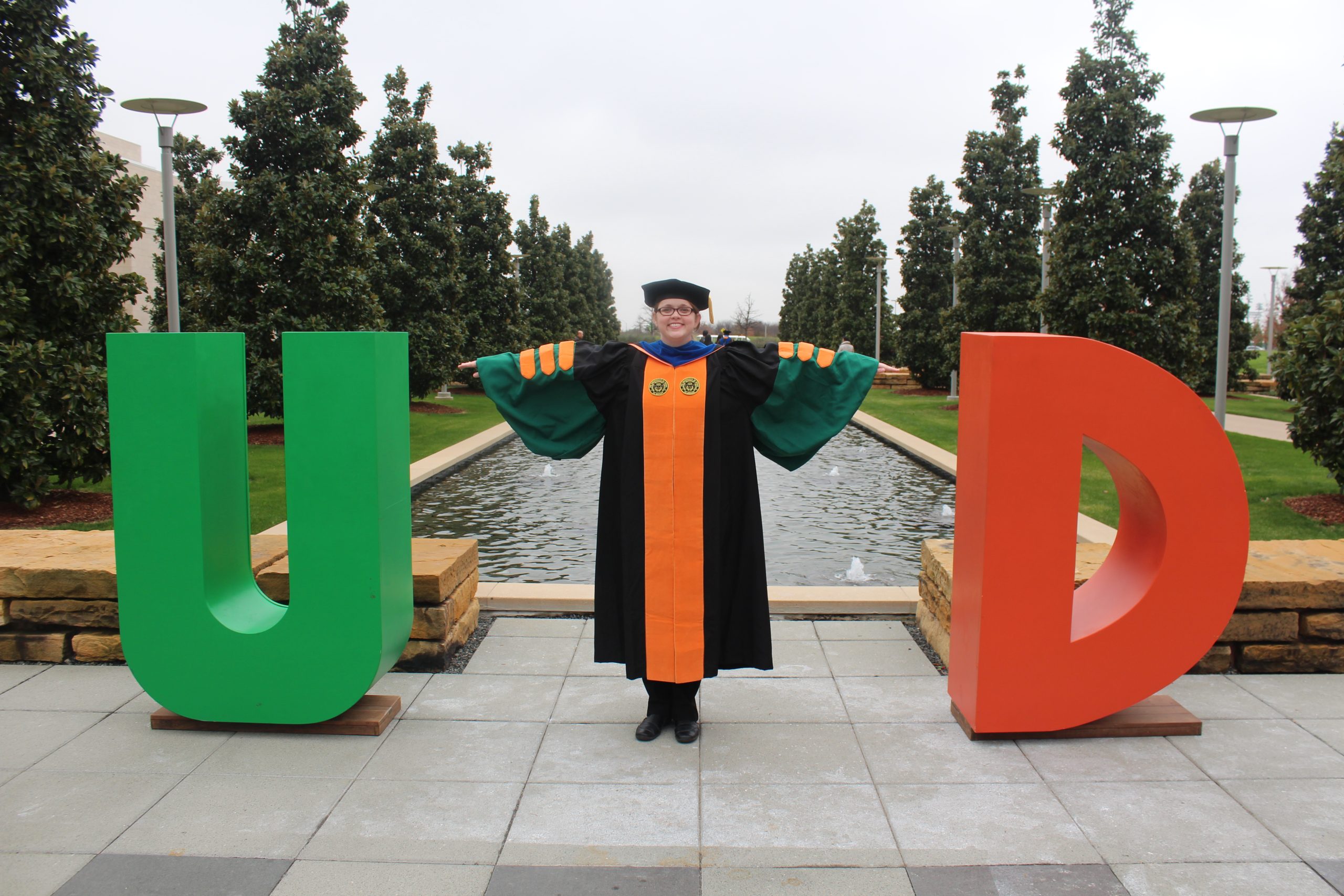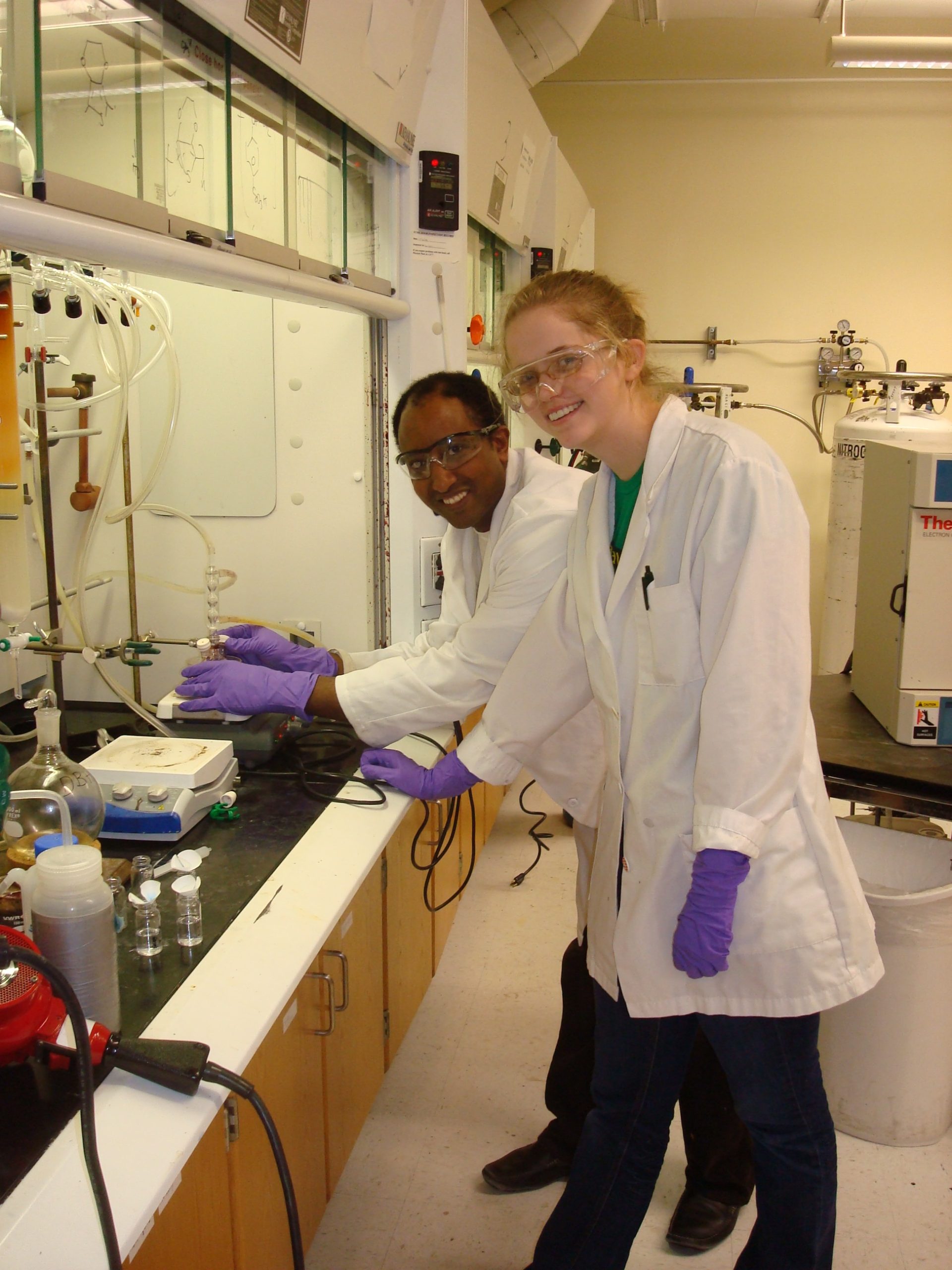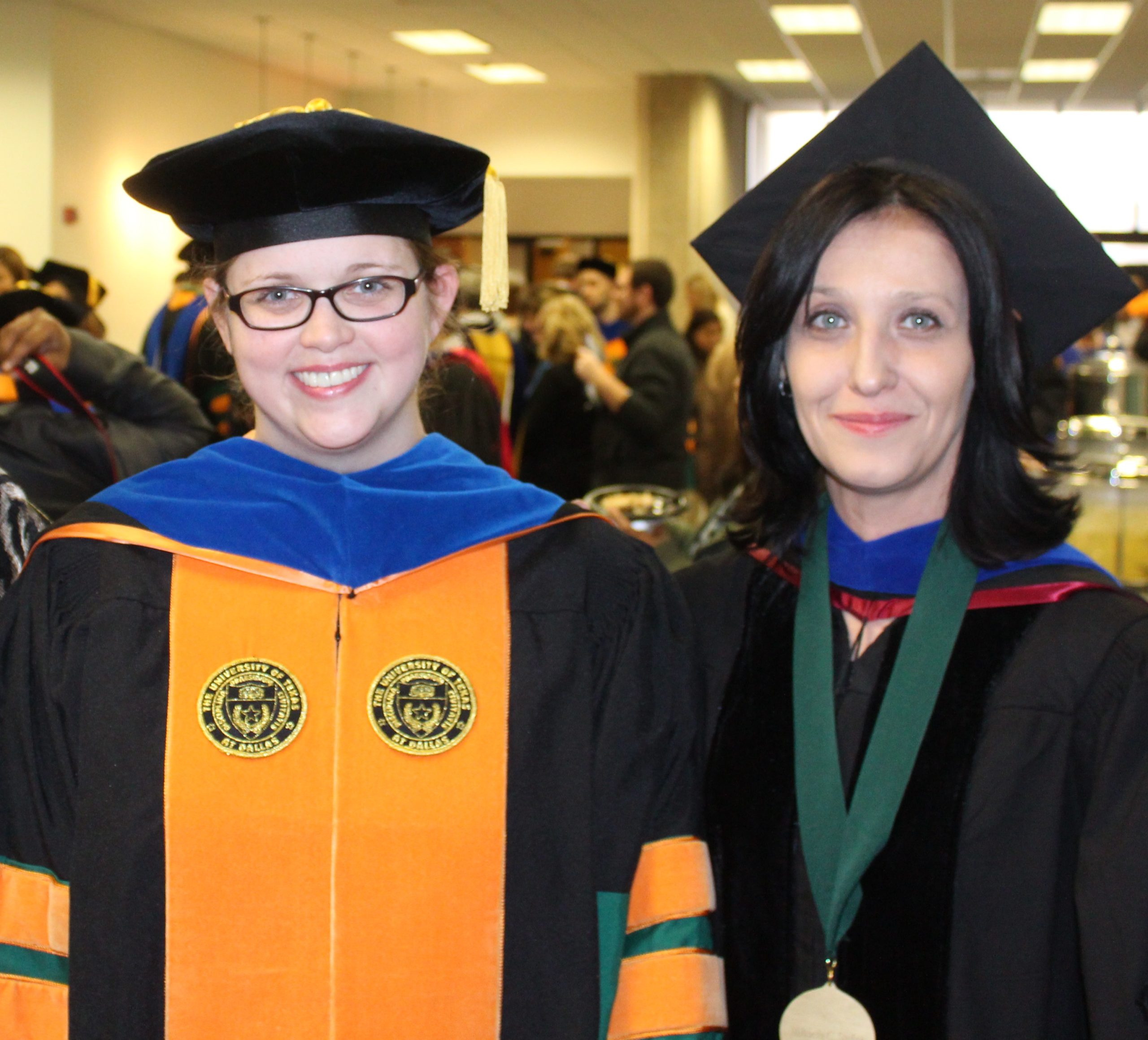By Caryn Berardi
February 9, 2024

To understand what it takes to bring a pharmaceutical drug from the lab to a patient, Dr. Elizabeth Rainbolt BS‘10, PhD‘14 says to think about it like the rolling credits at the end of a blockbuster movie. It requires a large-scale collaboration among thousands of employees, scientists and experts from several fields to come together as one team.
In 2006, Rainbolt came to UT Dallas as an undergraduate chemistry student and Eugene McDermott Scholar. Now she is a senior principal scientist at Pfizer: the largest research-based pharmaceutical company in the world.
Working in Pfizer’s St. Louis-based research facilities, she oversees the later stages of the drug development process, taking early stage products to large-scale manufacturing. Rainbolt and her team design step-by-step procedures to evaluate risks, analyze failure modes and create effective control strategies that make the drug the right quality and reproducible for commercial use.

“I haven’t gotten bored once in my eight years at the company,” she said. “I have the opportunity to work with other chemists, biochemists, engineers and biologists to develop medicine that is going to help people have a better quality of life.”
Rainbolt was not always planning to be a scientist. Instead, set her sights on dentistry and thought majoring in chemistry would set her apart from other biology pre-dental students. Her reluctance to fulfill her degree plan’s research requirements quickly dissipated when she entered the laboratory.
“I didn’t think I would fall in love with it, but I did,” she said. “I loved that my program had that technical, engineering and material sciences route, as well as emerging in the biological space. When experiments failed or didn’t have the outcome I expected, it helped me build resilience and helped me learn how to problem solve later in my career.”
Rainbolt became a research assistant and lab manager for Chemistry and Biochemistry Department head and Eugene McDermott Professor Dr. Mihaela Stefan. According to Stefan, her academic talents stood out immediately.
“I met Liz when I taught my first organic chemistry course at UT Dallas,” Stefan said. “I quickly noticed her insightful answers to my questions, and I used all her feedback to improve my teaching in my first semester at UTD.”
Rainbolt was the only undergraduate student she supervised who created her own research project. When she pursued her doctorate, Rainbolt stayed with Stefan to study biocompatible and biodegradable polymers. Collaborating with UT Southwestern, Rainbolt’s goal was to use these modified polymers as a passive drug delivery system in the body.
Her research served as a gateway to the pharmaceutical industry. Her work with polymers and the ability to think outside of the box was exactly what Pfizer was looking for, even if Rainbolt felt out of place at first.
“People in science, especially women, can have imposter syndrome, so it is important to have mentors who can really encourage and support you. I’ve been fortunate to have a lot of great people in my corner from UT Dallas and beyond. No one succeeds in a vacuum.”
Elizabeth Rainbolt BS‘10, PhD‘14
“It can be really intimidating to join a company where people have worked for 30 years and I wasn’t even 30 years old at the time,” Rainbolt said. “I had to get comfortable being uncomfortable, and I had to accept that although I didn’t know everything, I had the power to find answers.”
Since starting her career in 2015, she has been promoted multiple times and was recently named a group leader. She manages five junior colleagues and helps them not only with any technical challenges, but also with their personal career development.
According to Rainbolt, it’s a position that reminds her of the advisers who have guided her, such as Stefan and Dr. Paul Pantano, associate professor of chemistry and biochemistry. Being a teaching assistant for Pantano’s class helped shape her into the mentor she is today, she said.

“People in science, especially women, can have imposter syndrome, so it is important to have mentors who can really encourage and support you,” Rainbolt said. “I’ve been fortunate to have a lot of great people in my corner from UT Dallas and beyond. No one succeeds in a vacuum.”
After nearly nine years in the pharmaceutical industry, Rainbolt is as excited as she was when she began. For her, being one of countless scrolling names in the credits signifies her contribution to advancing science and creating a safer, healthier world.
“I’m excited to help develop the next generation of scientists and future leaders,” she said. “Together we have the potential to prevent pain and suffering caused by diseases around the globe. What could be more rewarding than that?”
Help us leave the planet a better place for future generations. Your support for the School of Natural Sciences and Mathematics funds scientific discoveries with real-world applications, student and faculty recruitment, and academic scholarships.